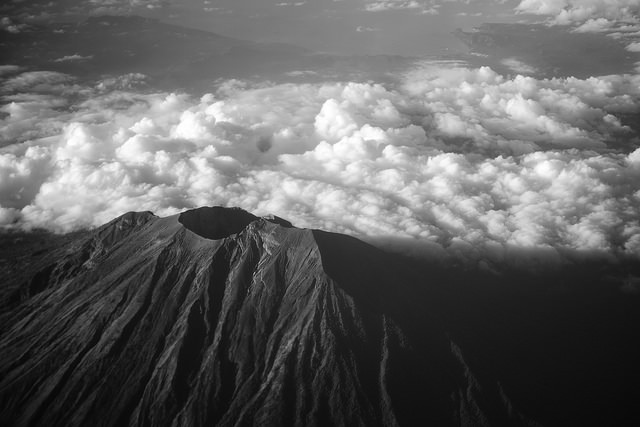
The beat
Chinese policing, Australian rules
The Australian Federal Police and Immigration Department have entered into a new agreement with China’s police agency, the Public Security Bureau, on cooperation between the agencies. The agreement clarifies what is expected of Chinese police operating in Australia under Australian law, and doesn’t involve an extradition treaty. The Turnbull government flip-flopped on an extradition treaty with China earlier this year, following a lack of bipartisan support for ratification.
Catalan independence?
In an apparent effort to stop the Catalan independence referendum, all police in the autonomous region are to be placed under the control of the central government. Madrid has accused local police of not enforcing the ruling by Spain’s Constitutional Court that declared the referendum illegal. The Catalan authorities have rejected the government’s move, which Joaquim Forn, interior chief of Catalonia, said ‘does not take into account all the legal framework’ for ensuring security in Catalonia.
Kenyan election results under a cloud
Kenya’s August election results which secured President Uhuru Kenyatta a second term are being investigated due to suspected hacking of electronic voting machines. Votes will be recast in October, after the Supreme Court annulled the August Kenyatta victory. Kenya’s elections have been plagued with violence and controversy in recent years.
CT scan
Russia–Pakistan joint CT drills
More than 200 Russian and Pakistani soldiers are participating in joint counterterror drills this week. The drills are being held in southern Russia and will include simulations of ‘hostage rescue missions, and cordon-and-search operations’. In 2014, Pakistan and Russia entered into a defence cooperation agreement and, according to Pakistani General Saeed Alamdar Houssein Shah, the drills are intended to ‘consolidate cooperation in the military sphere’. This is the second iteration of the drills; the first was conducted last September in Pakistan.
Global Counterterrorism Forum chairs re-elected
Morocco and the Netherlands have been re-elected as co-chairs of the Global Counterterrorism Forum (GCTF). The GCTF, established in 2011 with the US and Turkey as founding chairs, is an international forum of 30 members that works to implement the UN Global Counter-Terrorism Strategy. This week the GCTF also announced an initiative to address homegrown violent extremists, to be launched by the US and Morocco. The initiative will consider the causal factors of homegrown violent extremism and possible methods to address it.
Marawi conflict coming to a close
A spokesperson for the Armed Forces of the Philippines has announced that the military expect to retake Marawi in no more than a month. More than 800 people have died in the conflict and hundreds of thousands have been displaced.
Checkpoint
Manus refugees bound for the United States
A second group of refugees from Australia’s South Pacific offshore detention centres are preparing to leave for the United States as part of a refugee-swap agreement originally made between Prime Minister Malcolm Turnbull and President Barack Obama. The deal became highly publicised when a phone call between Turnbull and the newly instated President Donald Trump was leaked, revealing Trump’s contempt for the deal.
Bomb kit forces changes to border security
Packages coming into Australia will soon be subject to much tighter security after it was revealed that components for a bomb were mailed to Sydney from Turkey this year. The components were used as part of a foiled plot to take down a commercial aeroplane leaving Sydney. The acting commissioner of the Australian Border Force, Michael Outram, said that ‘the global supply chain is borderless’, prompting the need for offshore screening technology and other security measures.
Turkey considers blocking oil after Kurdish vote
An overwhelming majority of Iraqi Kurds voted for independence from Iraq in Monday’s referendum. The vote has been strongly opposed by regional governments, in particular the governments of Turkey, Iran and Iraq. Turkey’s president, Recep Tayyip Erdogan, has threatened to cut the supply of oil to the Kurdish region, saying, ‘We have the tap. The moment we close the tap, then it’s done.’
First responder
Resilient cities
Special attention has been paid to the resilience of cities against natural disasters since widespread destruction was caused by hurricanes Harvey and Irma. The Huffington Post’s Anna Almendrala outlined many issues that contribute to inadequate disaster resilience in cities, such as poor urban planning and polluted waste sites. However, she also highlighted policies that have increased disaster resilience, such as the prioritisation of green infrastructure and adding of ‘submarine doors’ to flood-prone hospitals.
Resilience gap threatens island communities
Robert Glasser, the head of the UN Office for Disaster Risk Reduction, analysed the resilience capability challenges for ‘small island developing states’. Despite barely contributing to anthropogenic climate change, these already highly indebted islands are positioned to suffer the worst effects of warming. Glasser argues that their ‘resilience gap’ is going to grow unless strong policies that reduce existing risks and avoid creating new risks are enacted.
Bali evacuation
Indonesia’s National Disaster Management Agency has concluded that Bali’s dormant volcano Mount Agung may erupt soon. Authorities are currently undertaking a mass evacuation of 50,000 people who live in the ‘danger zone’. Bali has long been the favourite leisure destination of Australians. The possible consequences of a Mount Agung eruption are discussed here.

